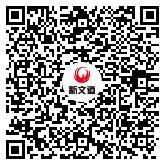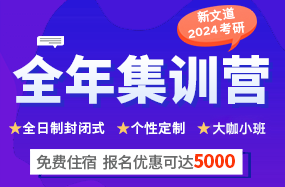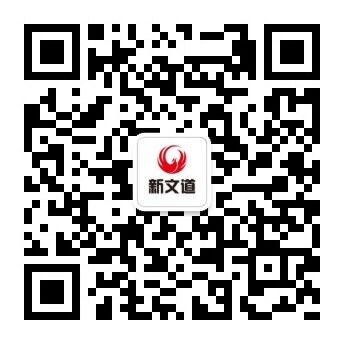***2020考研每日一句來了,這是***老師第8年的堅持,從元宵節開始一直到考前,跟著***老師一起堅持學習起來,下面是湖北新文道考研小編為大家整理的***每日一句第158句!
The Lost Generation - 迷惘的一代
The Interbellum Generation - 兩次大戰中間的一代
The Greatest Generation - 最偉大的一代
The Silent Generation - 沉默的一代
Baby Boomer Generation - 嬰兒潮一代
Generation X (Baby Bust) - X世代
Xennials - 介于X世代和千禧一代之間的一代人(1977年-1983年出生)
Millennials Generation Y, Gen Next - 千禧一代
iGen / Gen Z - 千禧后一代,亦稱“Z世代”
(出生在互聯網已普及的時代95后!)
Gen Alpha - 阿爾法世代(現在還沒上小學的那代人)
今天的句子:
If “entitled” is the most common adjective, fairly or not, applied to millennials (those born between 1981 and 1995), the catchwords for Generation Z are practical and cautious. According to the career counselors and experts who study them, Generation Zs are clear-eyed, economic pragmatists. Despite graduating into the best economy in the past 50 years, Gen Zs know what an economic train wreck looks like. They were impressionable kids during the crash of 2008, when many of their parents lost their jobs or their life savings or both. They aren’t interested in taking any chances.
(想想你會怎么出題?)
Why Generation Zs have no interest in taking the risk?
(A) They don’t see any chances in taking the risk.
(B) They are more entitled than the millennials.
(C) They are graduating into the booming economy.
(D) They have been influenced by the economic setback.
單詞:
1. entitled 形容人表示:自我
2. applied to 適用于
3. catchwords 流行語,標志詞
4. career counselors 職業咨詢顧問
5. impressionable 易受影響的
6. millennials 千禧一代
7. clear-eyed 清醒
8. pragmatist 實用主義者
9. economic train wreck 經濟列車翻車(比喻經濟危機)
10. taking any chances 冒險
11. setback 困難
第一句:
If “entitled” is the most common adjective, fairly or not, applied to millennials (those born between 1981 and 1995), the catchwords for Generation Z are practical and cautious.
參考譯文:如果“自我”是最經常用來形容千禧一代(出生于1981年至1995年)的詞——且不論這個詞是否公平,Z世代的口號則是實用和謹慎。
第二句:
According to the career counselors and experts who study them, Generation Zs are clear-eyed, economic pragmatists.
參考譯文:據研究他們的職業顧問和專家說,Z世代是目光清醒的經濟實用主義者。
第三句:
Despite graduating into the best economy in the past 50 years, Gen Zs know what an economic train wreck looks like.
參考譯文:盡管Z世代在畢業的時候遇見了這50年最好的經濟狀況,但他們也知道經濟崩盤是什么樣子。
第四句:
They were impressionable kids during the crash of 2008, when many of their parents lost their jobs or their life savings or both.
參考譯文:2008年經濟崩盤時,他們都是易受影響的孩子,他們的父母要不失業、要不耗盡積蓄,要不兩者盡失。
第五句:
They aren’t interested in taking any chances.
參考譯文:他們不想冒險。
雖然第五句和第三句和第四句沒有形式上的因果詞。
但是既然問題問了為什么會有第五句,
那么就只能先判斷第三句和第四句是原因了。
通過語義可以判定因果關系,
所以:
(D) They have been influenced by the economic setback.
他們手到過經濟困難的影響。
是對第四句的同意替換!
正確!
其他三個選項:
(A) They don’t see any chances in taking the risk.
他們沒有從冒險中看到任何機會。
這個選項看上去非常合理,但是文中沒有任何依據。
(B) They are more entitled than the millennials.
他們比千禧一代更自我。
即使你不認識entitled,也不能選!
這個比較不存在!
(C) They are graduating into the booming economy.
他們畢業的時候正好經濟繁榮。
第三句中專門說了,雖然他們畢業時經濟繁榮但他們知道經濟崩潰是什么樣子。
所以,經濟繁榮不是他們不愿意冒險的原因。
以上就是湖北新文道考研為大家整理的“2020***考研英語每日一句第158句”的相關內容,2020考研人一起學起來吧!
推薦閱讀:***2020考研英語每日一句匯總
本文素材來源于網絡,由武漢新文道考研進行整理,想了解更多關于考研相關資訊,敬請關注新文道考研,我們將為同學們奉上全面完整的時下考研相關資訊。














 關注武漢新文道微信
關注武漢新文道微信